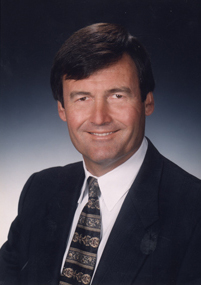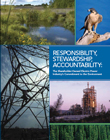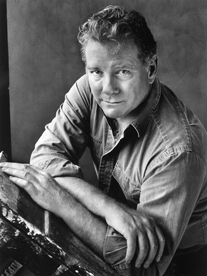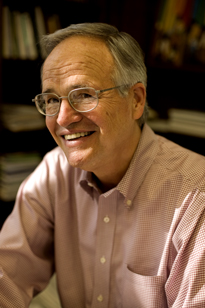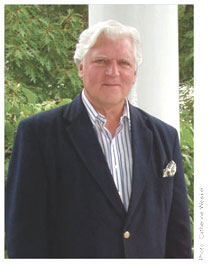|
|
Thomas R. Kuhn President Thomas R. Kuhn is president of the Edison Electric Institute, the association of investor-owned electric companies whose members generate and distribute approximately three-quarters of the Nation's electricity. In addition, EEI has a growing affiliate membership of utilities worldwide. Mr. Kuhn joined the Institute in 1985 as executive vice president, was named chief operating officer in 1988, and elected president in 1990. Prior to joining the Institute, Mr. Kuhn was president of the American Nuclear Energy Council, which subsequently merged with the Nuclear Energy Institute. The Council represented virtually all of the companies in the commercial nuclear power industry. He joined the Council in 1975 as vice president, government affairs, and became president in 1983. |
|
|
From 1972 to 1975, he headed the energy section of the investment banking firm, Alex Brown and Sons. Prior to that, from 1970 to 1972, Mr. Kuhn was White House Liaison Officer to the Secretary of the Navy. Mr. Kuhn
received a BA in Economics in 1968 from Yale University, served
as a Naval Officer following his graduation, and completed a Masters
in Business Administration in 1972 from George Washington University.
He completed the Stanford University Graduate School of Business
Senior Executive Program in 1989. |
||
|
Mr. Kuhn served on the Secretary of Energy Advisory Board and the Board of the U.S. Chamber of Commerce. He currently serves on the Boards of the United States Energy Association, The Alliance to Save Energy, The Electric Drive Transportation Association and the American Council for Capital Formation. He is chairman of the Committee of 100 of the U. S. Chamber of Commerce. He is Chairman-Emeritus of the American Society of Association Executives, and past-chairman of ASAE's Key Industry Association Committee and of the Trade Association Liaison Council. Mr. Kuhn was chosen as Association Executive of the Year 2000 by Association Trends magazine. He was the recipient of The Energy Daily's 2000 Public Policy Leadership Award. Mr. Kuhn also received the Alliance to Save Energy's 2004 Chairman's Award. Mr. Kuhn serves on the Boards of the National Park Foundation and the U.S. Navy Memorial Foundation. He also serves on the Board of the National Multiple Sclerosis Society, as well as being a Board member and past chairman of the National Capital Chapter. Mr. Kuhn was awarded the Bess Goodman Humanitarian Award in 2000. He served as 1992 and 1997 chairman of the Associations Division, United Way Campaign, and chairman of the 1996 through 1998 National Alliance to End Homelessness Awards dinners. |
||
